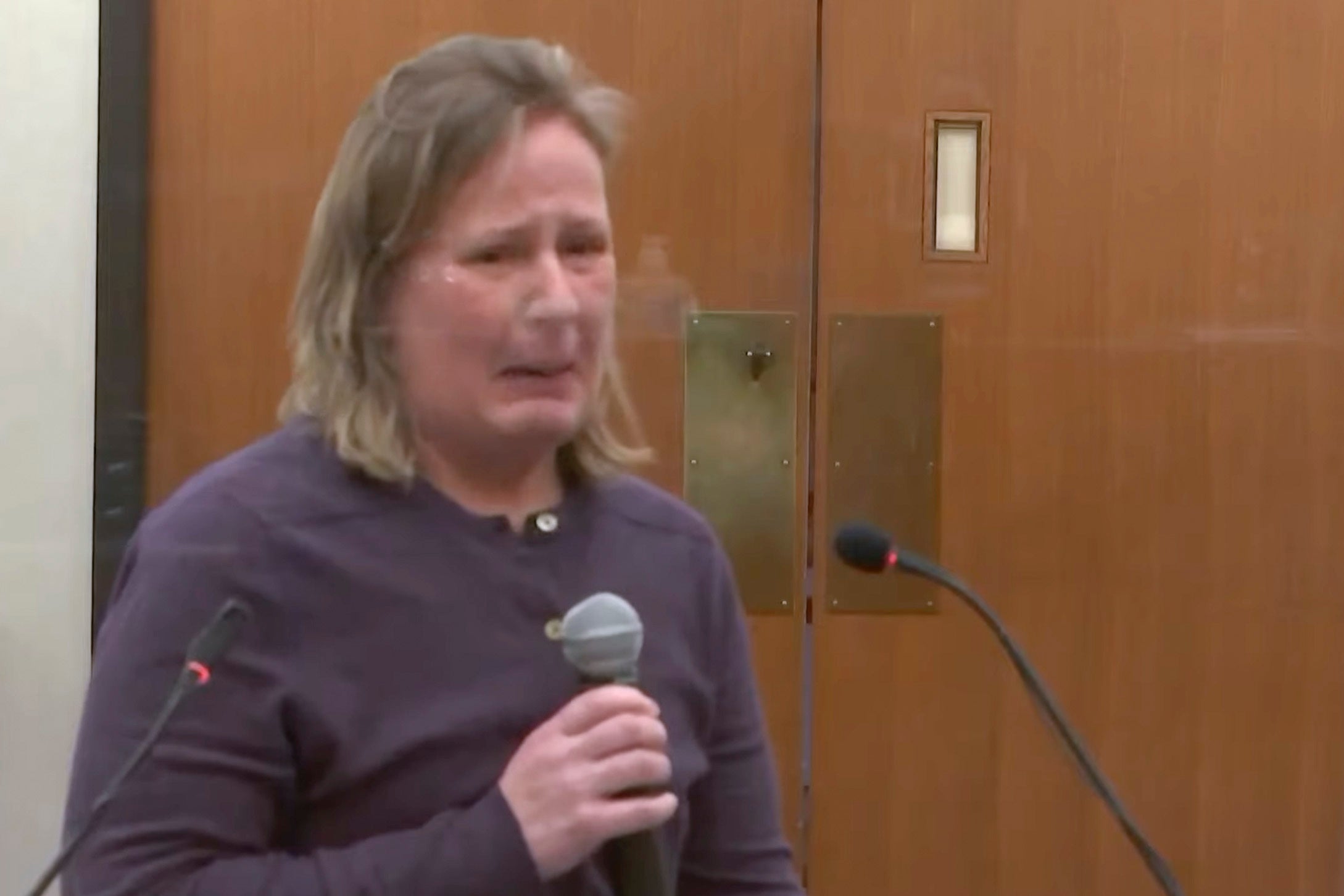Kim Potter attorney slammed for blaming Daunte Wright for shooting as defendant apologises at sentencing
‘This was an unintentional crime. It was an accident. It was a mistake’
Kim Potter’s lawyer has come under fire for shifting blame for the former Minneapolis police officer’s shooting of Daunte Wright onto the victim and saying she will be harmed by prison time during her sentencing hearing.
Defence attorney Paul Engh gave a lengthy statement to convince the judge that Potter should only be sentenced to probation for killing Wright, a 20-year-old Black man, when she apparently mistook her gun for a taser during a traffic stop in April 2021.
The judge ultimately handed down a sentence of 24 months – 16 in prison and the rest under supervised release – after Potter offered an apology to Wright’s family.
“I am so sorry that I brought the death of your son, father, brother, uncle, grandson, nephew and the rest of your family to your home,” she said.
Addressing Wright’s mother, she added: “Katie, I understand a mother’s love and I am sorry I broke your heart. My heart is broken for all of you.”
“Earlier, when you said that I didn’t look at you during the trial, I don’t believe I had a right to. I didn’t even have a right to be in the same room with you. I am so sorry that I hurt you so badly.”
She continued: “I pray for Daunte and all of you many, many times a day. He is not more than one thought away from my heart and I have no right for that, for him to be in my heart.
"And I do pray that one day, you can find forgiveness, only because hatred is so destructive to all of us. And that I pray peace will always be with you and your family. Again, I am so sorry.
“And to the community of Brooklyn Center, I owe you all an apology to you. I loved working for you and I am sorry what’s happened to our community since the death of Daunte. And the men and women who work for you still are good, honorable people and will work hard for you.”

In his statement, Mr Engh shifted blame for the shooting onto Wright as he outlined mitigating factors that he said warrant a lower sentence, saying Potter was justified in fearing for her life because the victim was resisting arrest.
He cited testimony from other officers at the scene as proof that they were in danger because Wright was attempting to drive away.
“This was an aggressive act. I don’t know how it couldn’t be an aggressive act,” he said.
Referencing traces of marijuana found in the car, Mr Engh said Wright was “arguably intoxicated”.
He called the case “beyond tragic for everybody involved”, but added: “This was an unintentional crime. It was an accident. It was a mistake.”
Mr Engh also read several letters complimenting Potter and urged the justice system to take her feelings into account.
He said Potter “should be helped” because “I don’t think she’s ever going to get over” the killing and called for “mercy and forgiveness”.
Mr Engh further said Potter’s time in jail between conviction and sentencing caused her mental and physical health to decline because she has been isolated.
He said being a former police officer would make her “vulnerable to assault” behind bars, adding: “If you send her to prison, you will harm her. And we are not in the business of harming defendants.”
Mr Engh also spoke about the family’s criticism of Potter smiling in her mugshot after her conviction.
“There is no disrespect intended with booking photo. They asked her to smile and she smiled. It was not meant to be disrespectful. It was in response to the prison’s request,” he said.
Mr Engh’s statement drew the ire of Twitter users.
Explaining her reasoning behind the sentence, Judge Regina Chu noted that Potter had “honourably served for 26 years as a police officer. She was a respected officer and consistently went over and above the call of duty.”
She added Potter’s conduct “was significantly less serious than your typical manslaughter case.
“Officer Potter never intended to use her firearm. She mistakenly drew her firearm at all times intending to use her Taser,” she said.
Judge Chu appeared to be fighting back tears as she spoke, calling this “one of the saddest cases I’ve had in 20 years on the bench”.




